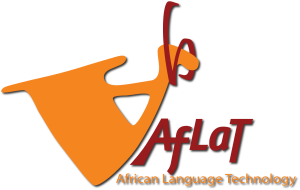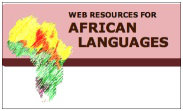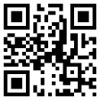2nd Call for Papers - Extended Deadline
2nd Call for Papers -- Extended Deadline
Language Technologies for African Languages
March 30 or 31 (to be determined), 2009
Athens, Greece
A Workshop at the annual meeting of the European Association for Computational Linguistics
ABOUT THE WORKSHOP
In multilingual situations, language technologies are crucial for providing access to information and opportunities for economic development. With somewhere between 1,000 and 2,000 different languages, Africa is a multilingual continent par excellence and presents acute challenges for those seeking to promote and use African languages in the areas of business development, education, research, and relief aid. In recent times a number of African researchers and institutions have come forward that share the common goal of developing capabilities in language technologies. This workshop provides a forum to meet and share the latest developments in this field. It also seeks to include linguists who specialize in African languages and would like to leverage the tools and approaches of computational linguistics, as well as computational linguists who are interested in learning about the particular linguistic challenges posed by African languages.
The workshop will consist of an invited tutorial on African language families and their structural properties by Prof. Sonja Bosch (UNISA, South Africa), followed by refereed research papers in computational linguistics. The focus will be on the less-commonly studied lesser-resourced languages, such as those of sub-Saharan Africa. These include languages from all four families, Niger-Congo, Nilo-Saharan, Khoisan and Afro-Asiatic with the exception of Arabic which is covered by the SIGSemitic workshops. The workshop will also not cover variants of European languages such as African French, African English or Afrikaans.
We invite submissions on any topic related to Language Technologies and African languages including, but not limited to, the following:
 Corpora and corpus annotation,
Corpora and corpus annotation,
 Machine readable lexicons,
Machine readable lexicons,
 Morphological analyzers and spelling checkers,
Morphological analyzers and spelling checkers,
 Part of speech taggers and parsers,
Part of speech taggers and parsers,
 Speech recognition and synthesis,
Speech recognition and synthesis,
 Applications such as machine translation, information extraction, information retrieval, computer-assisted language learning and question answering.
Applications such as machine translation, information extraction, information retrieval, computer-assisted language learning and question answering.
Other topics of interest are:
 The role of language technologies in economic development, education, health care, and emergency and public services.
The role of language technologies in economic development, education, health care, and emergency and public services.
 Documentation of endangered languages and the use of language technologies to enhance language vitality,
Documentation of endangered languages and the use of language technologies to enhance language vitality,
 Language technologies delivered on mobile platforms, e.g. phones.
Language technologies delivered on mobile platforms, e.g. phones.
TRAVEL FUNDING
A very limited amount of travel funding is available. Preference will be given to authors of accepted research papers who are traveling from Africa.
SUBMISSION INSTRUCTIONS
Authors are invited to submit original, unpublished work in the topic area of this workshop. Submissions should follow the two-column format of the EACL 2009 main-conference proceedings and should not exceed eight (8) pages, including references. We strongly recommend the use of either the LaTeX style file or the Microsoft-Word Style file, which can be found at https://www.eacl2009.gr/conference/authors.
The reviewing will be blind and the paper should therefore not include the authors' names and affiliations.
Submission will be electronic. Papers must be submitted no later than January 19, 2009 using the submission webpage:
https://www.softconf.com/eacl09/african/
Submissions will be reviewed by 3 members of the Program Committee. Authors of accepted papers will receive guidelines on how to produce camera-ready versions of their papers for inclusion in the EACL workshop proceedings.
Notification of receipt will be emailed to the contact author.
IMPORTANT DATES
Submission deadline: January 19, 2009 (EXTENDED)
Notification of acceptance: February 2, 2009
Camera-ready papers due: February 13, 2009
Workshop: either March 30 or 31, 2009 (to be announced)
ORGANIZING COMMITTEE
 Lori Levin: Language Technologies Institute, Carnegie Mellon University, USA (Workshop Chair)
Lori Levin: Language Technologies Institute, Carnegie Mellon University, USA (Workshop Chair)
 John Kiango: Director, Institute of Kiswahili Research, University of Dar Es Salaam, Tanzania
John Kiango: Director, Institute of Kiswahili Research, University of Dar Es Salaam, Tanzania
 Judith Klavans: University of Maryland, Institute for Advanced Computer Studies, USA
Judith Klavans: University of Maryland, Institute for Advanced Computer Studies, USA
 Manuela Noske: Microsoft Corporation, Redmond, USA
Manuela Noske: Microsoft Corporation, Redmond, USA
 Guy De Pauw: University of Antwerp, Belgium | University of Nairobi, Kenya | AfLaT.org
Guy De Pauw: University of Antwerp, Belgium | University of Nairobi, Kenya | AfLaT.org
 Gilles-Maurice de Schryver: African Languages and Cultures, Ghent University, Belgium | University of the Western Cape, South Africa | AfLaT.org
Gilles-Maurice de Schryver: African Languages and Cultures, Ghent University, Belgium | University of the Western Cape, South Africa | AfLaT.org
 Peter Waiganjo Wagacha: School of Computing and Informatics, University of Nairobi, Kenya | AfLaT.org
Peter Waiganjo Wagacha: School of Computing and Informatics, University of Nairobi, Kenya | AfLaT.org
PROGRAM COMMITTEE
 Akinbiyi Akinlabi, Rutgers University
Akinbiyi Akinlabi, Rutgers University
 Yiwola Awoyale, University of Pennsylvania, Linguistic Data Consortium
Yiwola Awoyale, University of Pennsylvania, Linguistic Data Consortium
 Moussa Bamba, University of Pennsylvania, Linguistic Data Consortium
Moussa Bamba, University of Pennsylvania, Linguistic Data Consortium
 Alan Black, Carnegie Mellon University
Alan Black, Carnegie Mellon University
 Sonja Bosch, University of South Africa
Sonja Bosch, University of South Africa
 Christopher Cieri, University of Pennsylvania, Linguistic Data Consortium
Christopher Cieri, University of Pennsylvania, Linguistic Data Consortium
 Robert Frederking, Carnegie Mellon University
Robert Frederking, Carnegie Mellon University
 Dafydd Gibbon, University of Bielefeld, Germany
Dafydd Gibbon, University of Bielefeld, Germany
 Jeff Good, SUNY Buffalo
Jeff Good, SUNY Buffalo
 Mike Gasser, Indiana University
Mike Gasser, Indiana University
 Gregory Iverson, University of Maryland, Center for Advanced Study of Language
Gregory Iverson, University of Maryland, Center for Advanced Study of Language
 Stephen Larocca, US Army Research Lab
Stephen Larocca, US Army Research Lab
 Michael Maxwell, University of Maryland, Center for Advanced Study of Language
Michael Maxwell, University of Maryland, Center for Advanced Study of Language
 Jonathan Owens, University of Maryland, Center for Advanced Study of Language
Jonathan Owens, University of Maryland, Center for Advanced Study of Language
 Tristan Purvis, University of Maryland, Center for Advanced Study of Language
Tristan Purvis, University of Maryland, Center for Advanced Study of Language
 Antonia Schleicher, University of Wisconsin at Madison
Antonia Schleicher, University of Wisconsin at Madison
 Tanja Schultz, Karlsruhe University
Tanja Schultz, Karlsruhe University
 Clare Voss, US Army Research Lab
Clare Voss, US Army Research Lab
 Briony Williams, University of Wales, Bangor
Briony Williams, University of Wales, Bangor
CONTACTS
Lori Levin
Language Technologies Institute
Newell-Simon Hall, Carnegie Mellon University
Pittsburgh, PA 15213
USA
lsl cs cmu edu
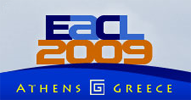

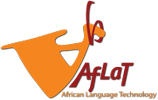




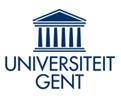

- Login to post comments
